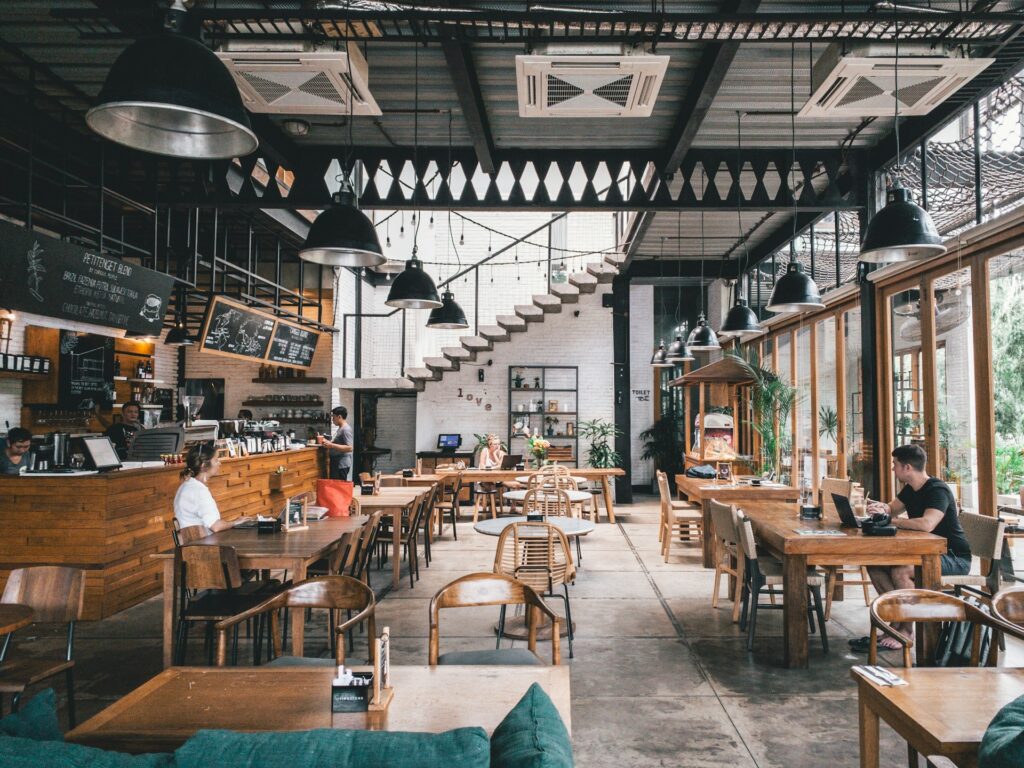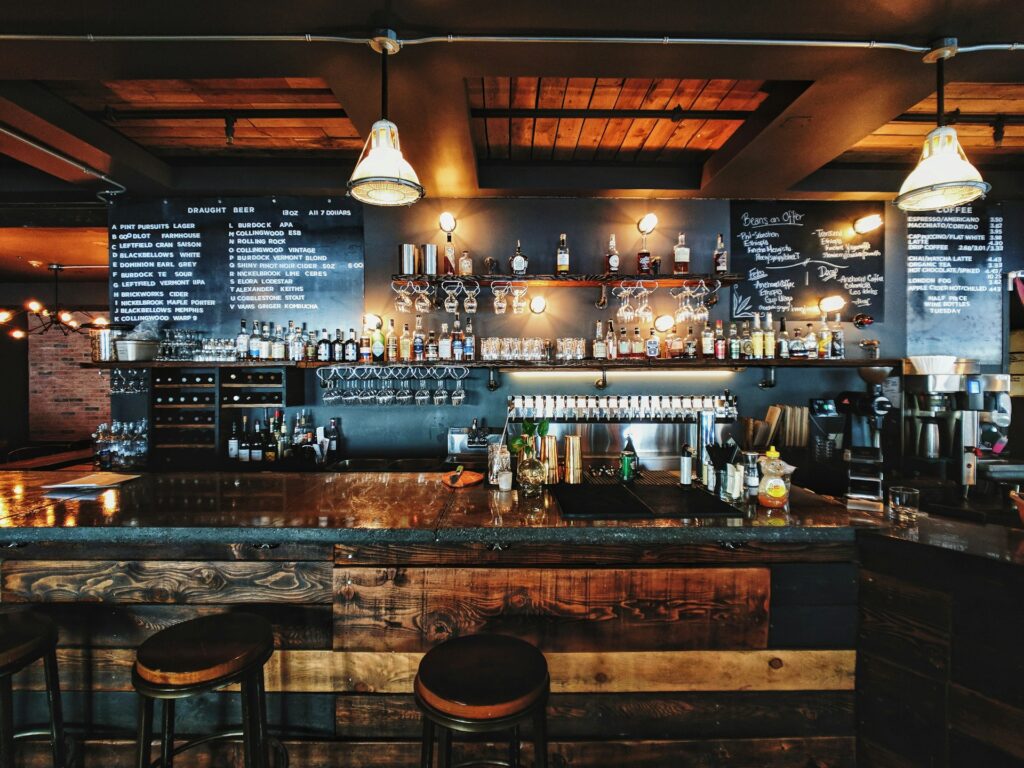The restaurant industry is notoriously challenging, with a high rate of failure for new establishments. In fact, it’s regularly reported that more than half fail in the first 12 months; a sobering reality that has been in the news with every growing ferocity recently.
But what are the underlying causes of these failures? Here we explore just some of the more common reasons that contribute to the short lifespan of many new restaurants.
Some Key Reasons Why A Restaurant Might Fail In Its First 12 Months
Insufficient Market Research
One of the primary reasons restaurants fail is due to inadequate market research. Many restaurateurs jump into the business driven by passion but neglect to analyse whether there is a demand for their concept in the chosen location. Understanding the local market, the competition, and the target demographic is crucial. Without this knowledge, even the most passionate and skilled chefs and managers can find themselves struggling to attract customers.
Read: 4 IDEAL market research methods for food businesses

Lack of a Unique Selling Proposition (USP)
In a market saturated with dining options, a new restaurant must stand out. A unique selling proposition is what differentiates a restaurant from its competitors. Whether it’s a unique menu, a distinctive dining experience, or exceptional service, a USP is vital. Restaurants that fail within the first year often lack a clear USP, leaving potential customers with no compelling reason to choose them over established venues.
Poor Financial Management
Cash flow is the lifeblood of any business, and restaurants are no exception. Many new restaurants underestimate the capital required to sustain the business until it becomes profitable. Unexpected costs, such as emergency repairs, can also be a death knell for a cash-strapped establishment. Moreover, poor management of expenses, such as food waste, labour costs, and inefficient operations, can quickly lead to financial ruin.
This is where powerful restaurant management software can help businesses unify their daily operations into a single ecosystem. Modern solutions integrate point-of-sale systems, inventory tracking, cost analysis, and financial reporting, giving restaurateurs real-time visibility into their cash flow and helping them identify potential issues before they become critical problems.
Read: Demystifying business insurance for start-ups in the UK
Inadequate Experience & Leadership
Running a restaurant requires a specific set of skills and experience. Many new restaurateurs are chefs or individuals with a passion for food but may lack the necessary business acumen. Leadership is also critical; a strong leader can motivate staff, manage operations efficiently, and make tough decisions when necessary. Without this expertise and leadership, restaurants often struggle to navigate the complexities of the industry.
Compromised Quality Or Inconsistency
Consistency is key in the restaurant business. Customers expect the same level of quality every time they visit. New restaurants sometimes make the mistake of starting strong but then allowing standards to slip as they become more comfortable or as they start cutting costs. This can lead to a loss of repeat business, which is essential for a restaurant’s survival.
Neglecting Marketing & Customer Engagement
In the digital age, marketing and customer engagement are more important than ever. New restaurants need to establish a strong online presence, engage with customers through social media, and encourage reviews and word-of-mouth recommendations. Many restaurants fail because they either neglect these areas or execute them poorly, missing out on the opportunity to build a loyal customer base.
Check out this guide on marketing materials for restaurants, such as flyers, bespoke menus, and more, for some useful info on helping you develop a strong brand online and beyond.

Failure To Adapt
The restaurant industry is dynamic, with constantly evolving consumer trends and preferences. Successful restaurants are those that can adapt to these changes. This could mean tweaking the menu, embracing new technologies, or refreshing the decor. Restaurants that fail within the first year often do so because they are too rigid and unable to pivot in response to feedback or market trends.
Location, Location, Location
A restaurant’s location can make or break its success. Factors such as visibility, accessibility, parking, and local demographics play a significant role. A poor location can limit footfall and deter potential customers, making it difficult for even the best restaurants to survive.

Plain Old Bad Luck
Sometimes, despite meticulous planning, a strong concept, and a dedicated team, restaurants fail for reasons that can only be chalked up to plain old bad luck. The capricious nature of fate can play a significant role in the success or failure of a new restaurant. Here a few examples…
Unforeseen Events
Unpredictable events such as road construction blocking access, a sudden change in local regulations, or even adverse weather conditions can severely impact a restaurant’s operations. For instance, a new restaurant might open its doors just as a major road development starts, diverting potential traffic for months. Similarly, a harsh winter can deter diners from venturing out, hitting a restaurant’s bottom line hard.
Public Health Crises
The recent global pandemic has taught us that public health crises can have devastating effects on the hospitality industry. A new restaurant might open shortly before an outbreak of illness, leading to mandatory closures or a drop in public confidence, through no fault of the owners.
Supply Chain Disruptions
Supply chain issues can also strike unexpectedly, leading to shortages of key ingredients. This can force restaurants to alter their menus or serve subpar dishes, disappointing customers and damaging reputations.

Personal Circumstances
Sometimes, the bad luck is personal. A key member of the team might fall ill or have to leave unexpectedly due to personal issues, leaving the restaurant struggling to fill the gap. The loss of a head chef or a manager can be particularly destabilising for a fledgling restaurant.
The Luck Of The Draw
Finally, there’s the simple, inexplicable bad luck that can befall any business. A new, well-reviewed restaurant might just happen to open at the same time as several others, splitting the potential market. Or a viral social media post could unjustly tarnish the reputation of a restaurant just as it’s trying to establish itself.
Mitigating Misfortune
While it’s impossible to plan for every eventuality, successful restaurateurs learn to be resilient and resourceful. They have contingency plans, maintain a healthy cash reserve, and are quick to respond to and recover from setbacks, all while serving the best food they can. They understand that while bad luck can play a part in the failure of a restaurant, good management, adaptability, and perseverance can often help to weather the storm.
The Bottom Line
The restaurant industry is fraught with challenges, and the statistics can be daunting. However, understanding the common pitfalls can help aspiring restaurateurs navigate the treacherous waters of the business.
By conducting thorough market research, developing a strong USP, managing finances wisely, gaining the necessary experience, maintaining quality, engaging in effective marketing, adapting to change, and choosing the right location, new restaurants can increase their chances of success and longevity.
For those brave souls who venture into the restaurant industry, it’s not just about surviving the first year; it’s about laying the groundwork for a sustainable and thriving business that will delight customers for years to come.





